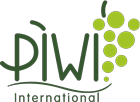EU rules on the sustainable use of pesticides aim to protect human health and the environment from the potential risks and effects of pesticides.
The regulations encourage the reduction of pesticides by
- integrated crop protection
- Alternatives to chemical pesticides.
This initiative is examining the extent to which these targets have been met and how pesticide use can be further reduced in order to achieve the goals of the Farm to Fork strategy and the European Green Deal.
PIWI International does not refer to the resistant varieties in this regulation!
“The proposal for a regulation on the sustainable use of plant protection products focuses too much on integrated pest management and misses the point – investing in and promoting cultivar resistance.
Many agricultural crops already have cultivars with a genetically encoded higher level of resistance classic interspecific crossing was acquired. These new varieties have natural resistances and are therefore less susceptible to disease, therefore requiring much less treatment than traditional grape varieties, and when using less aggressive products. This also reduces the carbon footprint, not just the chemical load.
The dissemination and promotion of these new varieties, especially in viticulture, where there are already enough positive experiences across Europe, should be the main direction for agriculture, along with the replacement of aggressive chemicals.
In the case of grapevines, for example, around 100 such varieties are already registered in the relevant variety lists in the EU Member States, and more are being added all the time. Dozens of them are approved for the production of top wines (PDO and also DOC) in some countries such as Germany, Austria, Czech Republic, Switzerland, Italy and France and have won high awards at international wine competitions. In general, therefore, the greatest potential for reducing pesticide use lies in the biological value of varieties, which is not addressed in the proposed regulation.

